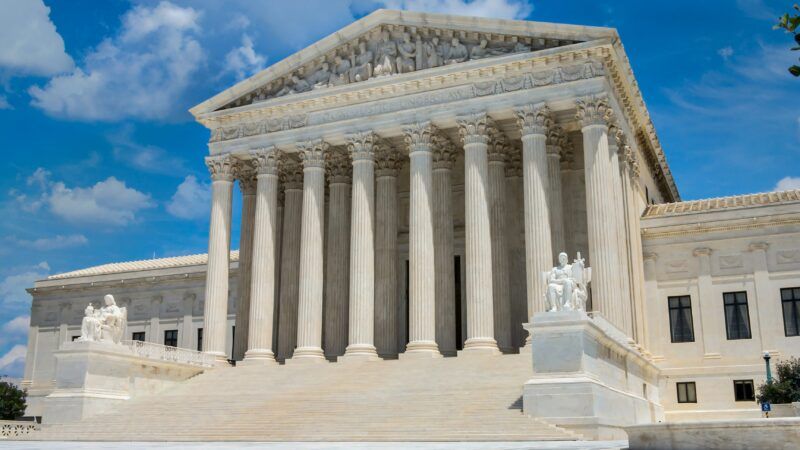Trump's Tariffs Face a Major 'Major Questions' Problem at the Supreme Court
The same legal theory that tripped up Joe Biden's student loan scheme could also sink Donald Trump's tariffs.

The Trump administration has asked the U.S. Supreme Court to quickly review a case challenging the legality of President Donald Trump's sweeping trade barriers—but the appeal seems likely to run headlong into the same issue that lower courts highlighted when ruling against the tariffs.
In their respective rulings in the tariff case, both the U.S. Court of International Trade and the U.S. Court of Appeals for the Federal District have leaned on the "major questions" doctrine. Under that legal theory, the executive branch can only exercise powers that Congress has explicitly granted. The U.S. Supreme Court invoked that doctrine in other recent high-profile cases, including the 2023 ruling that struck down then-President Joe Biden's student loan forgiveness scheme.
There is no doubt that Congress has, in fact, granted huge tariff powers to the executive branch. But the narrow question before the Supreme Court is whether the law Trump has invoked to impose these tariffs—the International Emergency Economic Powers Act (IEEPA)—grants such broad authority. The law does not contain the word "tariff" and has never been used to impose tariffs before now.
In its 7–4 ruling against the tariffs last month, the federal appeals court noted that "it seems unlikely that Congress intended, in enacting IEEPA, to depart from its past practice and grant the President unlimited authority to impose tariffs."
Furthermore, the appeals court said that if Congress intended to give the president such broad tariff powers, it would have done "so explicitly, either by using unequivocal terms like tariff and duty, or via an overall structure which makes clear that Congress is referring to tariffs."
When it ruled in May, the Court of International Trade also nodded to the major questions doctrine when it concluded that "any interpretation of IEEPA that delegates unlimited tariff authority is unconstitutional."
It's clear that this doctrine is central to the Supreme Court's review of this case, because the administration's brief to the court spends several pages discussing how that doctrine intersects with the lower courts' rulings. "In short, IEEPA is all about major questions," the administration argues, "and the more natural presumption is that Congress intends broad language conferring emergency powers to be construed broadly, not narrowly."
But if that's true, IEEPA could be read to allow the president to do literally anything in response to any declared "emergency," no matter how much of a threat it actually poses—and by declaring trade deficits to be an emergency, Trump has already stretched the meaning of the word to new limits.
The situation is not much different than when the Biden administration claimed the power to forgive all student loans because Congress had once passed a law allowing limited student loan forgiveness for 9/11 first responders. The Supreme Court, in that case, leaned on the major questions doctrine in ruling that executive power should be construed narrowly, not broadly.
It should do the same here. Rather than tying itself into knots to affirm nearly unlimited executive powers over commerce, the Supreme Court should tell the Trump administration to get permission from Congress before imposing new tariffs.


Show Comments (66)